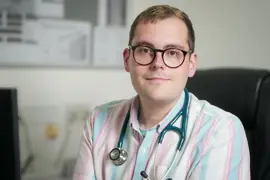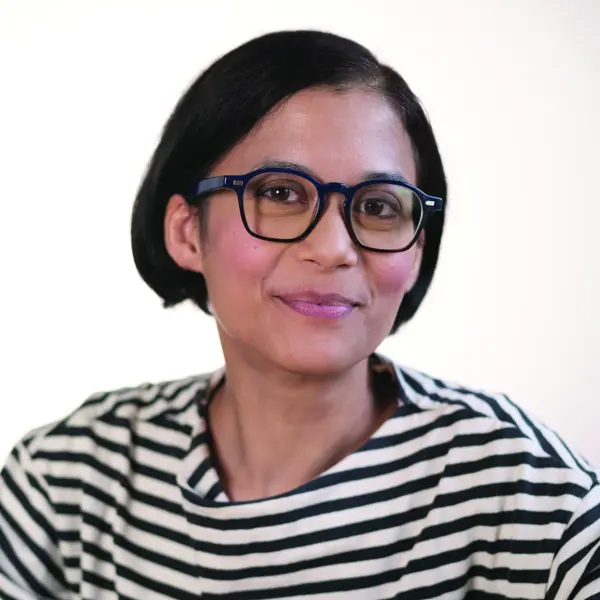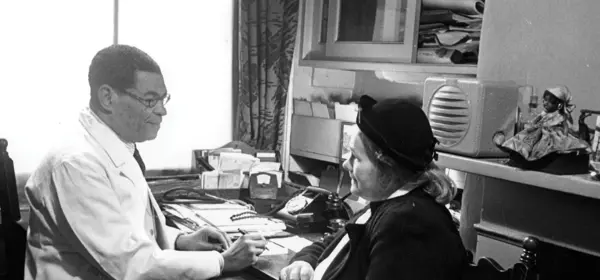
More than able
Autistic doctors often face stigma and discrimination, but with the right environment, they can thrive
‘I think a lot of medical people just think, “I can’t be autistic, because that’s not compatible with being a doctor”.’
Edinburgh intensive care medicine consultant Rosie Baruah is one of many examples refuting the long-standing and widely held belief that autistic people are unsuited to a career in medicine.
Dr Baruah was already at an advanced stage in her career when, at the age of 46, she learned that she was autistic, following her teenage daughter’s own diagnosis.
She has since sought to use her own lived experience as an autistic doctor working in the NHS to support and hopefully inspire other neurodivergent doctors and medical students, as well as challenge the misconceptions around autism and the medical profession.
These misconceptions, often based on ignorant or simplistic understandings of autism, include the beliefs that autistic doctors lack empathy, have poor interpersonal skills and are unable to function within the unpredictable and high-pressure working conditions of the health service.
‘Autistic people actually can flourish in medicine, and are probably very common in medicine,’ says Dr Baruah.
Autistic people actually can flourish in medicine, and are probably very common in medicine
Rosie Baruah
‘This is partly because autistic traits such as intensive hyperfocus, special interests and adherence to routine, all of these things help you succeed at getting into and succeed at medical school and that very much can help you in medicine.’
Despite having many aptitudes for medicine, the fact many doctors and students are either unaware they are autistic or choose not to disclose their status to others, illustrates the lack of understanding and visibility around autism which persists in medicine.
‘[Unfortunately] I think medicine is, as a profession, extremely ableist – and we are very judgmental of our colleagues who have medical problems or who take time off with burnout,’ says Dr Baruah.
‘The deficit model of autism and the medical diagnosis model of autism will not allow doctors to see themselves [as autistic] and I think people would really struggle to identify themselves as autistic because they are then worried of how they will be perceived, and actually, quite rightly so.’
Perceptions
This fear of how employers, tutors and colleagues will perceive and respond to a disclosure of autism is something Dr Baruah experienced first-hand after seeing the reactions from other doctors to a BBC article in which she shared her story.
‘It was like driving past a car crash to hear yourself being discussed by people who don’t know you,’ reflects Dr Baruah.
‘There was one doctor saying how they would strongly dissuade any autistic child they knew from pursuing a career in medicine, as they “simply can’t do it”.
‘I think that stigma absolutely plays into medical students and doctors who have not finished their training not wanting to disclose because they’re worried that their autism will be weaponised against them.’
The findings of a cross-sectional study of the experiences of autistic doctors published last year appear to confirm this fear of being stigmatised, with 72 per cent of those aware of their autism deciding not to disclose their status while at medical school.
I think medicine is, as a profession, extremely ableist
Rosie Baruah
The study also found 29 per cent of the 225 respondents to the survey had not disclosed their autism to anyone in their workplaces.
The study’s lead author, medical education lecturer at Brighton and Sussex Medical School Seb Shaw, was in his first year of specialty training when he learned that he was autistic.
His diagnosis allowed him to make sense of the immense challenges he had experienced early on in his career.
‘I definitely struggled with transitioning to practice,’ reflects Dr Shaw, recalling the intense and, at that time, inexplicable mental and physical stress he felt during an induction to foundation year 1.
‘I spent [my] induction sobbing in a toilet for six hours wondering why I was losing my vision in one eye and why it felt like someone was putting a fire poker on my head. It was due to stress related to change and transitions but at the time I didn’t understand it.’
Masking
Dr Shaw, who like Dr Baruah, is a member of the advocacy group ADI (Autistic Doctors International) and serves as the group’s research lead, now dedicates much of his work to improving experiences in healthcare for neurodivergent patients and making medical education more inclusive of neurodivergent students.
In his paper, Dr Shaw argues that taking a neurodiversity-affirmative approach to autism, which includes peer support, mentorship, and supportive communication, in medical education and the workplace could help break down the barriers preventing many autistic doctors from disclosing their status.
Creating an environment in which autistic doctors feel confident that they will not be treated unfairly could reduce the pressure many feel to engage in ‘masking’, in which autistic people strive to conceal certain traits and aspects of their personality, to ‘better fit in’ with those around them.
The act of masking poses a huge mental and emotional drain on those who engage in it and can also make autistic doctors vulnerable to taking on more responsibility in the workplace, further exacerbating the risk of illness and burnout.
Among the most alarming findings from Dr Shaw’s study was the extent to which autistic doctors can struggle with their mental health, with 49 per cent of respondents to the study saying they had self-harmed and 77 per cent having felt suicidal.
‘We are more aware that if we weren’t to mask, we’re probably going to upset people, and therefore we will always mask and always try to people-please,’ explains Dr Shaw.
‘I think particularly for doctors and autistic people, that need to constantly feel that one is achieving one’s best and being perfect and being so invested in one’s work makes you vulnerable.
‘Everyone was confused when I kept saying “I’m very, very burnt out” because to them I didn’t look it, and that’s common. For autistic people burnout is sudden and people [around you] don’t see it coming.’
Despite some of the unique challenges autistic doctors can face, Dr Baruah and Dr Shaw say simple adaptations and adjustments to working practices can often make a huge difference to improving outcomes.
Dr Shaw explains that during a specialty trainee 2 training post in general practice, the surgery agreed to him working a slightly different shift pattern.
This, he says, had allowed him to treat a greater number of patients in a shorter space of time simply because the change gave him a greater sense of predictability and stability.
‘You wouldn’t put a wheelchair user on a rotation that was in a pathology lab on a first floor with no lifts,’ explains Dr Shaw.
‘I think there’s an increasing willingness to think about these things, but there is still the ableist idea [among some deaneries and employers] that to be better is to make fewer adjustments.’
I spent my induction sobbing in a toilet wondering why I was losing my vision in one eye
Seb Shaw
Dr Baruah says she would like to see medical education adopt an ‘autism acceptance model’ in its approach to training, in which adjustments for autistic students would mean levelling the playing field rather than providing an unfair advantage.
‘It could be that an autistic student may be able to benefit from fewer attachments further away from home, so they still have their home environment and social network around them rather than being sent to a hospital 80 miles away for two months to do their medicine attachment,’ she explains.
‘That to me gives them equal opportunity to thrive within that attachment because, while nobody wants to move away, for the autistic student, it could genuinely lead to an inability to benefit from their educational experience.’
While autistic doctors can experience challenges because of their neurodivergence, these staff can also hold distinct advantages when delivering care.
One example of this concerns communication and the aptitude many autistic doctors have when it comes to following processes.
Understanding difference
Citing the example of the training given to all doctors around having difficult conversations and delivering bad news to patients, Dr Baruah says autistic doctors used to scripting their social interactions could find these interactions easier than neuro-typical staff.
There is already a cultural divide between doctors and their patients – this is exacerbated in the event of a non-autistic doctor and an autistic patient, sometimes referred to as the ‘double empathy problem’.
With autistic and neurodivergent patients already facing more barriers to accessing healthcare, often because of previous bad experiences when engaging with the health service, and thus more likely to have poorer health outcomes, Dr Shaw says that having neurodivergent staff within the workforce is crucial.
There was one doctor saying how they would dissuade any autistic child they knew from pursuing a career in medicine
Rosie Baruah
‘That is where I think the importance of autistic doctors comes in,’ he says.
‘We can communicate similarly, we get the differences, we understand autistic people present totally differently, that we’re eight times more likely to be hypermobile, which means we feel pain differently; body sensations differently.
‘I think having neurodivergent and autistic people in the workforce helps to ameliorate [barriers to care] somewhat.’



